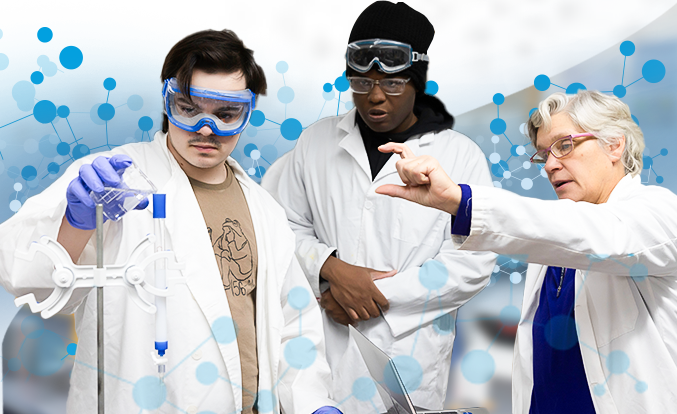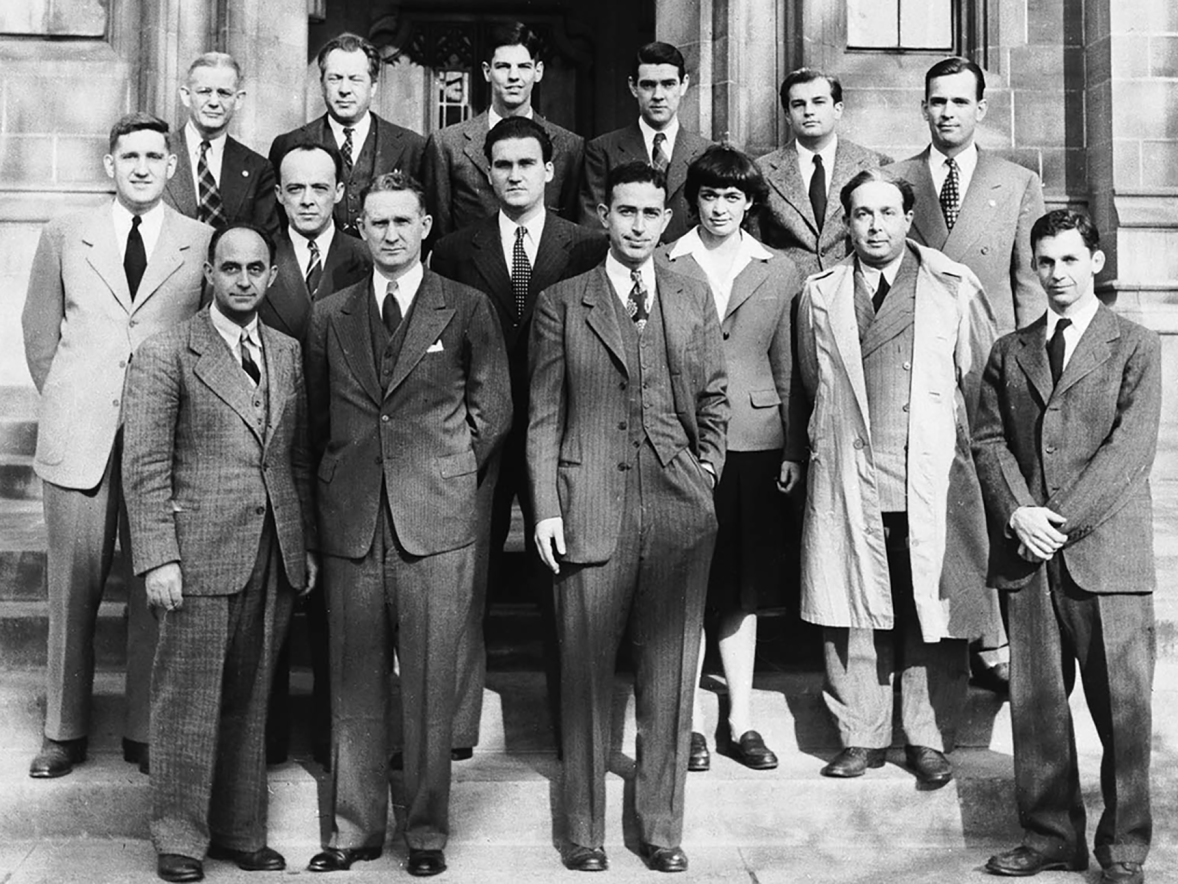Combine the Elements of Your Success
UW-Stout's Bachelor of Science (B.S.) in Chemistry integrates chemical sciences with practical applications in the commercial sector, providing a solid foundation in theoretical and applied aspects of the chemistry field. Our curriculum spans multiple branches of chemistry to prepare you to synthesize and characterize new materials and effectively scale production processes. The program emphasizes real-world learning through laboratory work and research, preparing you for impactful careers in chemistry and related fields.

Career-Defining Curriculum
Our curriculum is supplemented by comprehensive studies in related sciences. You'll engage in significant lab work and interdisciplinary research that brings classroom theory to life.
Program Highlights
- A Foundation for Diverse Careers: As the central science, Chemistry connects a range of fields from medicine to nanotechnology. Our graduates embark on careers armed with diverse skills, preparing them for success in both the workforce and advanced study.
- Hands-On Learning on Day One: The Chemistry program's core courses, including Organic Chemistry, Biochemistry, and Physical Chemistry, equip students with essential chemical principles and practical applications. Courses like Chemistry of Polymers, Quantitative Analysis, and Instrumental Methods prepare students for the industry, while an Intro to Quantum Mechanics offers a foundational scientific understanding.
- Real-World Experience Through Original Research: Our mentor-directed research, performed in our advanced labs and facilities, will lay the groundwork for more application-oriented developments, as well as projects intended for future commercial implementation.
Use the Request Information form to receive a program summary and learn more about the Bachelor of Science degree in Chemistry.
Request Information
Do More in Our Industry-Standard Labs & Facilities
While collaborating with other institutions, you will have access to supplementary techniques, in addition to networking with professionals in the field. These instruments are incorporated into the laboratories of several courses:
- Gas Chromatography - Mass Spectrometry (GCMS)
- Fourier Transform Infrared Spectroscopy (FTIR)
- High Performance Liquid Chromatography – Mass Spectrometry (HPLCMS)
- Energy Dispersive X-Ray Spectroscopy (EDX)
Current Research Topics
- Bio-inspired catalysis
- Emulsion polymerization and surface chemistry characterization
Chemistry majors at UW-Stout take core chemistry courses covering basic principles of chemical structure and reactivity, followed by advanced courses in chemistry, as well as mathematics, physics, biology, and nanoscience, allowing students to tailor the curriculum to their interests. All Chemistry students participate in directed and independent research projects undertaken during advanced courses and within faculty research groups. Students also apply their knowledge through a cooperative education internship as part of their degree requirements. Whether you are looking for immediate employment upon graduation, or planning to attend a graduate or professional school, a Bachelor of Science in Chemistry opens countless doors.
Learning Objectives:
Upon completion of the program students will be able:
- Demonstrate knowledge of fundamental principles of chemistry, including bonding and structural theories, chemical reactivity, thermodynamics, and kinetics
- Explain how macroscale properties of substances and materials are determined by interactions of atoms, molecules, and ions
- Perform basic chemistry laboratory techniques, including synthesis, isolation, purification, and analysis of chemical substances
- Operate a variety of analytical instruments, understand the physical basis of the analytical methods, and analyze the data obtained
- Design, implement, and analyze results of a chemical experiment
- Communicate effectively orally and verbally in a variety of professional contexts
- Follow professional standards of safe and ethical conduct of experimentation, analysis, and reporting
The coursework, hands-on laboratories, instrumentation training, and research experiences will prepare you to work and be productive in a variety of fields including:
- Chemical Engineers
- Chemical Health and Safety Scientists
- Hazardous Waste Management Professionals
- Formulation/Process Chemists
Or you may decide to attend a professional or graduate school after completing your bachelor’s degree to study:
- Chemistry/Chemical Engineering








